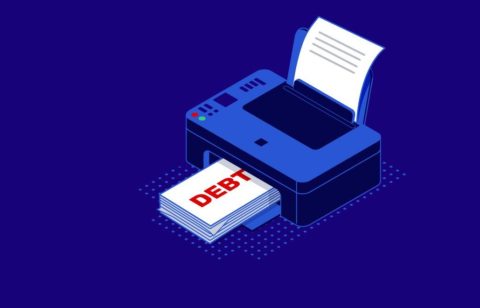Overwhelming medical bills are one of the top reasons people fall into debt. If you are using a credit card to pay those bills, it could end up costing you even more down the road. When unexpected illnesses or emergencies happen, it’s best to have savings on hand and avoid putting these expenses on your credit card. If you don’t have extra funds available, now is the time to create a savings plan.
However, if you are trying to pay off your medical debt without making your credit card balances bigger—and you don’t have enough savings to cover the costs, you may want to consider medical debt consolidation.
Here are some ways you could get relief from your medical debts:
People Also Read
Tap Into Your Home Equity Line Of Credit (HELOC)
If you own a home and have about 15-20% worth of equity, you could apply for a home equity line of credit (HELOC). This loan gives you the option to borrow money from the equity of your house—which could help pay off a lot of debt all at once. You’re also only required to pay back whatever amount you withdraw from your HELOC—not the total loan. To repay your HELOC, you usually start by making interest-only payments and then pay off the remaining principal later. Depending on your lender and how much money you use, this loan could last 20 or 30 years.
Disadvantages: HELOCs typically come with variable interest rates, meaning the interest on the outstanding balance will rise in sync with federal funds. There’s also a chance you would be required to make a balloon payment—which could be more than twice the loan’s average monthly payment. Another thing to consider with this loan, if you fall behind on your payments, you could lose your home to foreclosure.
Find A Medical Debt Negotiator
If you’re in over your head with medical bills and unable to pay them, you could work with a medical debt negotiator. They can negotiate your debt on your behalf with your hospital, clinic, or doctor to reduce the amount you owe.
Do your research before deciding to go this route. Make sure you know how much the medical debt negotiator you work with charges and their fees. This option may be ideal for families who don’t qualify for a governmental grant or debt forgiveness—and you could face higher interest rates because there’s no collateral (like your home) in case you stop making payments.
Reach Out To Credit Counseling Services
Looking into a credit counseling service could help if you’re having trouble finding medical debt solutions on your own. Using this service, a credit counselor will review your finances—including your income and debts—and work with your healthcare providers to settle your debt. They also offer budget counseling and money management classes.
Get Help Settling Your Debt
National Debt Relief can help you resolve your debt and help relieve you from worrying about your medical bills. We negotiate on your behalf to help you reduce or pay off your debt for less than you owe—and in a shorter amount of time. Our debt coaches have worked with 10,000 creditors and know how to get the most savings possible so that you can get back to doing the things that make you happy.









